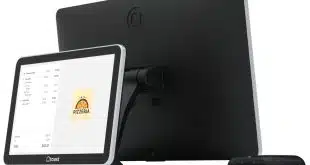With Visa Inc. and MasterCard Inc. digging in their heels on a key chip card deadline, payments executives are expressing doubts that all U.S. small businesses will be ready. “The short answer is no,” says Henry Helgeson, chief executive of Merchant Warehouse, a Boston-based merchant processor. “We still have a lot of work to do as an industry.”
In October 2015, the major card networks will shift liability for card fraud to the party that isn’t equipped to handle chip card transactions on the Europay-MasterCard-Visa (EMV) standard. While Visa and MasterCard appeared to some observers to be willing to back off somewhat on that deadline recently, both networks have confirmed the date in the wake of the massive data breach at Target Corp. and other retail chains.
That’s just some 400 business days away. Big retailers may be ready, observers say, because of their greater resources and ability to acquire needed hardware and software directly from terminal vendors. But a number of factors are slowing down the nation’s 23 million small enterprises, which account for 54% of U.S. sales, according to the Small Business Administration. The SBA uses a range of numbers to define small businesses; a small merchant, for example, cannot have yearly revenues greater than $5 million to $21 million, depending on its product mix.
One factor holding up small businesses is that technology sales to them are usually complicated and indirect, which means it takes longer for hardware and software to reach small merchants than it does to filter into large retailers’ stores. For the most part, these merchants are dependent on independent sales organizations and other resellers for gear, software, and advice. “We can’t directly reach out to [small] merchants,” says Erik Vlugt, vice president of product marketing at terminal maker VeriFone Systems Inc. “But we can reach out to ISOs. Can they do more? It would be wonderful if they did.”
For his part, Merchant Warehouse’s Helgeson says his company is working hard to make EMV part of its sales—it is incorporated into the company’s new Genius point-of-sale platform, for example—but part of the holdup is purely technical. Compared to mag-stripe cards, “EMV materially changes the flow of the transaction,” he says, requiring ISOs to account for the variety of POS software platforms, and the legions of software developers, that serve small merchants.
Only now are developers coming to believe that small merchants will actually adopt EMV in appreciable numbers, and this only because of the Target breach and the networks’ reaffirmation of their liability-shift deadline, Helgeson says. “Until the third quarter [of last year], the overwhelming majority were saying, ‘I’ll believe it when I see it,’” he says.
Nor are all small businesses convinced they need EMV, says Vlugt. “There’s a little bit of ‘I don’t care’ out there,” he says. “They don’t feel impacted by the liability shift or card fraud.”
What they may be discounting is the extent to which the recent breaches, and related buzz about chip cards, may have educated the public about the security benefits of EMV, Vlugt warns. That education will be reinforced by issuers touting the benefits of chip cards. “By 2015, there will be a lot of consumers educated on chip, and they will equate chip with security,” Vlugt predicts. “Merchants are underestimating the image they are portraying. That’s going to turn consumers off.”
What it will boil down to, says Helgeson, is a job long performed by ISOs, and one they are uniquely suited to—selling. “There’s going to be a lot of little things that have to be worked out, but small merchants are definitely going to need to be sold on this,” he says.





